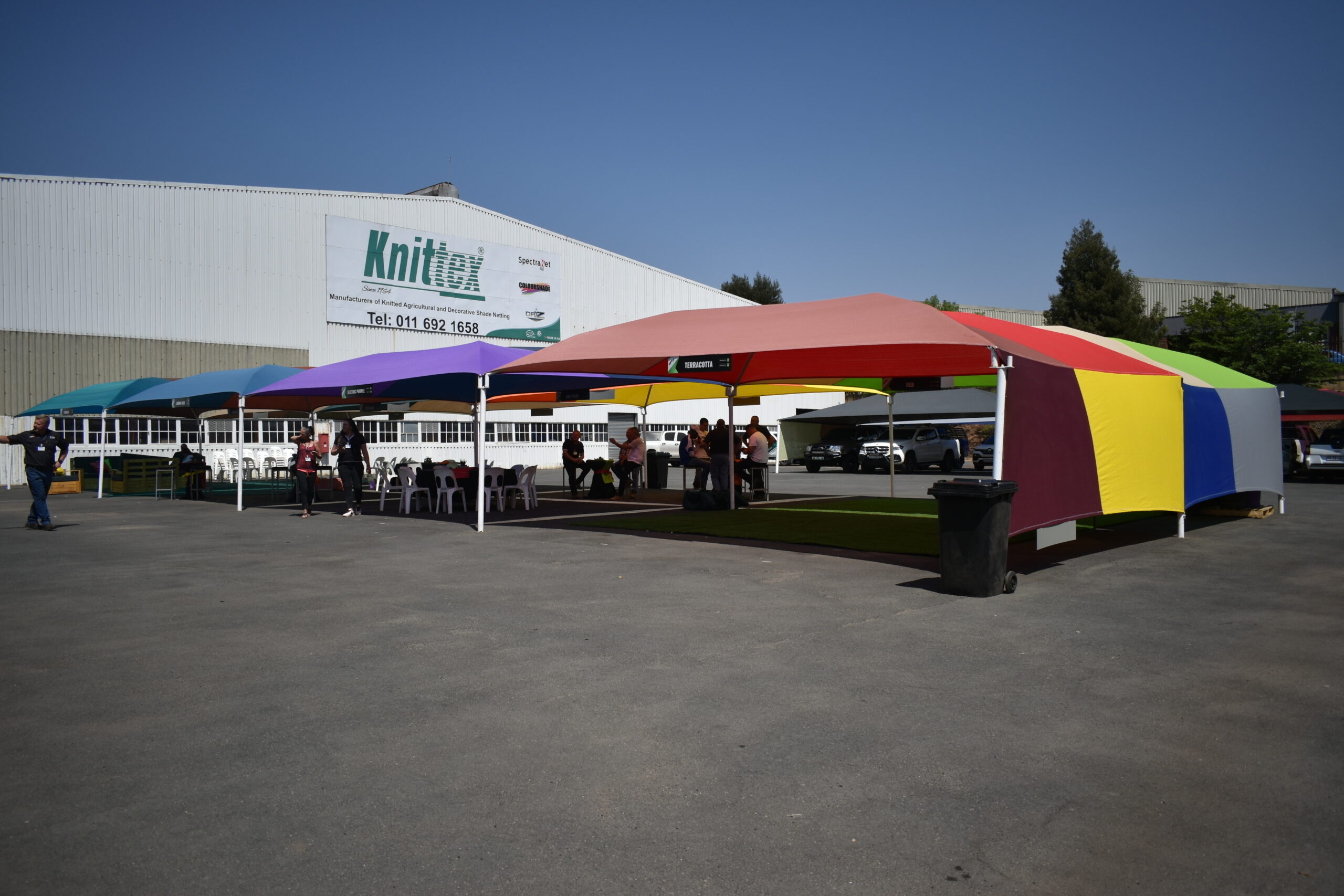In 2024, Multiknit will celebrate their 60th birthday. To build up to this special occasion, it is worth looking back at the starting point for this brand, considering its remarkable achievements and how it grew into what it is today.
Originally based in KwaZulu Natal, Multiknit commenced trading in 1964 with the import of hessian bags as packaging for wattle extract and maize. From these humble beginnings, the company proceeded to synthetic knitted fabrics. To produce their own fabrics, they acquired extrusion and knitting equipment. By 1969, they started manufacturing their own synthetic knitted fabrics and bags for produce.
Growing beyond agricultural netting and bags for fruits and vegetables
Mulitknit’s main business focus may have started in the manufacturing of agricultural netting and vegetable bags, but their innovation did not end there. It needed to be shared with other industries as well. In 1984, Knittex, an affiliate of Multiknit, commenced manufacturing decorative netting for shade ports and canopies.
Initially, only the striped colour range was being produced. However, this also soon expanded to include a wide range of monochrome nets. By 1994, the Z 25 Colourshade range was introduced to the market. Today, Knittex boasts with an impressive 29 colours in this range!
By 2000, the brand was ready once again to launch a new, unique product: DriZ. This waterproof shade net perfectly complemented the existing Colourshade range, providing the same vibrant, fade resistant colour but with a water-resistant factor. Now clients could cover assets with net that was also weatherproof!

Multiknit, the parent company of Knittex, has a global footprint in the shade net industry.
Some of the achievements by the company that are worth noting are:
- Z25 Colourshade has been the market’s preferred choice of decorative shade net for more than 29 years, not only in South Africa but around the globe
- Code 20 Buggle tube revolutionised the way of erecting Code 20 shade net. Installing the product is a lot simpler and it allows erectors to increase their capacity.
- Hail release is revolutionising the way in which structures are designed, allowing a huge reduction in structure cost.
- Hail release Knipol will revolutionise the table grape industry allowing for the ideal crop to be harvested in a rainy season.

The Mkhuhlu factory was built to suit the needs of the growing market for synthetic knitted fabrics.
Think bigger, think global
Back in 1982, Multiknit bought the Mkhuhlu based Sabie River Bag Company. Two years later, it moved into the current Mkhuhlu factory that was built to suit the growing business’ needs. In the following year, the Randfontein based company Allan Nicoll, which specialised in knitted fabrics for underground support services, was purchased in yet another expansion.
This strategic decision aligned with introducing the decorative fabric range to the industrial and commercial markets.
Multiknit’s International Division was later formed to venture into the global market. Initially, it focussed on the United Kingdom, United States of America, and Australian markets.
In 1989, the current management bought the brand from Natal Chemical Syndicate, whereafter they purchased Sakpro, a knitted vegetable bag manufacturer, based in White River, Mpumalanga.
Looking towards Multiknit’s bright future
When talking about the future, Knittex is focussing on diversification into new markets. Their goal is to also introduce new products continuously through innovation. Customer service and quality products are key to their success and they are conscious of the value of satisfied customers
Be on the lookout for promotions that will commemorate the 60th birthday of Knittex throughout 2024!

The impressive range of fade resistant Colourshade netting from Knittex can be seen on car ports at the Roodepoort facility.
Visit the Knittex website for more information.









